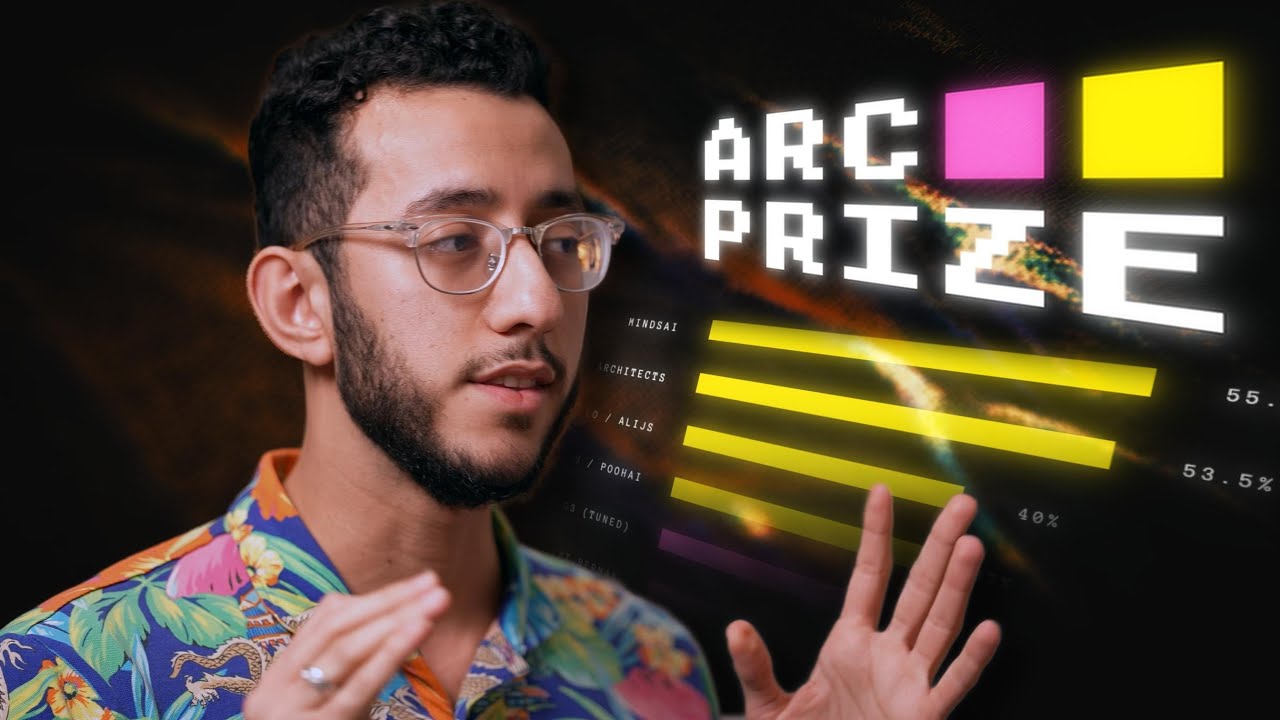The video explores advancements in deep learning through test-time adaptation and fine-tuning strategies that enhance model performance on abstract reasoning tasks, emphasizing the need for models to dynamically learn during testing. It discusses techniques like test-time active fine-tuning and reverse voting, while highlighting the limitations of current transformer architectures in basic reasoning tasks and the importance of ongoing research in this area.
The video discusses advancements in deep learning, particularly focusing on test-time adaptation and fine-tuning strategies that enhance model performance on abstract reasoning tasks, such as the ARC (Abstraction and Reasoning Challenge). The conversation highlights how traditional deep learning paradigms are being challenged by the need for models to adapt and learn during the testing phase rather than relying solely on pre-trained capabilities. The speakers emphasize the importance of contextualization and the ability of models to handle novel problems effectively, which is crucial for tasks that require reasoning and abstraction.
The discussion introduces the concept of test-time active fine-tuning, where models generate synthetic training data from examples during testing to improve their performance. This approach allows models to adapt dynamically to new inputs, enhancing their reasoning capabilities. The speakers also mention the significance of augmenting inference through techniques like reverse voting, which involves applying transformations to input puzzles and using a voting mechanism to identify consistent solutions. These methods have reportedly led to substantial performance improvements on the ARC challenge.
The conversation touches on the limitations of current transformer architectures, particularly their struggles with tasks involving counting and copying. The speakers argue that while transformers can excel in many areas, they often fail in basic reasoning tasks due to their inherent design limitations. They propose that by prompting models to consider all inputs and outputs simultaneously during the forward pass, it becomes easier to tune the model’s reasoning capabilities, making it more adaptable to new challenges.
The speakers also discuss the implications of the upcoming version of the ARC challenge, which aims to introduce more diverse and idiosyncratic riddles to test the adaptability and reasoning of models. They express excitement about the potential for new benchmarks that could further evaluate the contextualization abilities of transformers. The conversation highlights the need for ongoing research and experimentation to explore various angles of test-time adaptation and to refine the methodologies used in deep learning.
Finally, the video concludes with a discussion about the future of deep learning research at Tufa Labs, where the speakers plan to focus on abstract reasoning and compositionality in neural networks. They emphasize the importance of understanding the underlying mechanisms that govern model performance and the need for innovative approaches to tackle complex reasoning tasks. The speakers express optimism about the potential for breakthroughs in the field, driven by collaborative efforts and the exploration of new ideas in test-time adaptation.
